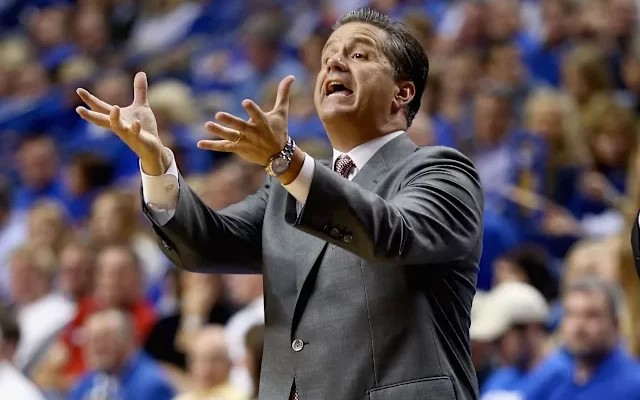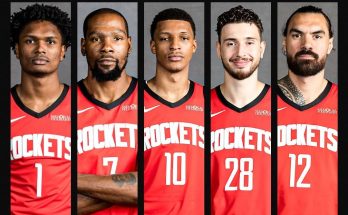The Significance of Two Kentucky Coaches Among the Top 25 College Basketball Coaches of the 2000s
The University of Kentucky’s basketball program is one of the most storied and prestigious in NCAA history. Known for its tradition of excellence, passionate fan base, and consistent success, Kentucky has been a dominant force on the hardwood for decades. The fact that two Kentucky coaches were recognized among the top 25 college basketball coaches of the 2000s speaks volumes about their influence on the sport during that decade and beyond. This achievement underscores not only their individual coaching abilities but also the broader impact they had on the Kentucky program, college basketball culture, and the development of players who would go on to make significant marks at the professional level.
Before diving into the significance of these two coaches, it is important to understand the historical context of Kentucky basketball. The Wildcats boast an illustrious legacy, with multiple NCAA championships, numerous Final Four appearances, and a reputation for producing NBA talent. Since its inception, Kentucky has been synonymous with success, often serving as a benchmark for excellence in college basketball.
During the 2000s, college basketball underwent considerable changes—ranging from evolving playing styles to shifts in recruiting philosophies and the increasing globalization of the game. The role of a coach became more complex, requiring not only tactical expertise but also the ability to manage player egos, handle media scrutiny, and navigate NCAA regulations. Within this dynamic environment, Kentucky’s coaches had to maintain the program’s elite status while adapting to these shifts.
The two Kentucky coaches commonly referenced from the 2000s who earned recognition among the top 25 college basketball coaches of that era are Tubby Smith and Billy Gillispie.
Tubby Smith, who led Kentucky from 1997 through 2007, is best known for guiding the Wildcats to an NCAA National Championship in 1998, his first season with the team. Smith’s success continued through the early and mid-2000s, as he maintained Kentucky’s position as a perennial powerhouse, regularly qualifying for the NCAA tournament and reaching the later rounds multiple times.
Billy Gillispie, though with a shorter tenure at Kentucky (2007–2009), made a significant impact by revitalizing the program during his brief stint. His hard-nosed coaching style and ability to recruit and develop talent helped set the stage for Kentucky’s resurgence in the early 2010s under John Calipari. Gillispie’s tenure, while controversial at times, showcased his ability to influence the program positively during a transitional phase.
The inclusion of both Smith and Gillispie in the top 25 coaches of the 2000s highlights their contrasting yet complementary coaching styles that contributed to Kentucky’s sustained excellence.
Tubby Smith’s coaching philosophy was grounded in defensive discipline, team cohesion, and fundamental basketball. Smith’s teams were known for their toughness and ability to execute in high-pressure situations. The 1998 championship run is a testament to Smith’s ability to prepare his players mentally and physically for the rigors of March Madness. His calm demeanor and steady leadership earned him respect from players, peers, and fans alike.
Under Smith, Kentucky maintained a style of play that emphasized balanced offense and stifling defense, a formula that brought consistent results. Smith’s recruiting acumen allowed him to attract top-tier talent while fostering an environment that prioritized player development. Many of his players went on to have successful professional careers, underscoring his ability to prepare athletes for the next level.
Billy Gillispie’s coaching approach, on the other hand, was more intense and aggressive. Known for his fiery sideline presence and emphasis on physicality, Gillispie brought a renewed energy to the program. His teams played with high tempo and relentless pressure defense, traits that resonated with Kentucky’s blue-collar basketball tradition.
Gillispie’s impact was particularly notable in terms of recruiting. He successfully attracted a strong class of players who would later become cornerstones for Kentucky’s success. His tenure may have been brief, but the groundwork he laid helped transition Kentucky into a modern era of recruiting and performance standards. Gillispie’s willingness to push the boundaries and demand excellence from his players was a catalyst for the program’s revival.
Having two coaches in the top 25 of the decade also reflects the broader strength and stability of Kentucky’s basketball program. These coaches were instrumental in maintaining Kentucky’s status as a national contender despite challenges such as increased competition from other programs and changes in NCAA regulations.
Program continuity and culture: The Wildcats’ culture, characterized by high expectations and accountability, was nurtured by both coaches. Smith upheld the program’s tradition while adapting to the modern era, and Gillispie pushed the program towards a more aggressive and intense competitive mindset. This balance ensured that Kentucky remained a premier destination for recruits and a consistent presence in the national conversation.
Player development: Both coaches excelled at developing talent. Under their leadership, numerous players matured into NBA prospects, reinforcing Kentucky’s reputation as a “basketball factory.” Their ability to mentor young athletes and prepare them for professional careers added to their influence within college basketball.
Recruiting impact: Kentucky’s recruiting prowess during the 2000s was bolstered by the work of these coaches. Smith and Gillispie attracted some of the best high school talent in the country, maintaining Kentucky’s pipeline of elite players. Their reputations and coaching styles helped secure commitments from players who might otherwise have chosen rival programs.
The significance of two Kentucky coaches ranking among the top 25 coaches of the 2000s extends beyond the program itself to the broader landscape of college basketball.
Elevating the Southeastern Conference (SEC): Kentucky’s success under these coaches helped raise the profile of the SEC in basketball, a conference traditionally known for football dominance. Their achievements contributed to increased national respect and competitiveness for SEC basketball programs.
Influencing coaching trends: The contrast between Smith’s measured, defense-first style and Gillispie’s high-energy, pressure-based approach exemplified evolving coaching philosophies in the 2000s. Their success encouraged other coaches to experiment with blending fundamental discipline with aggressive tactics.
Shaping player pathways: The coaches’ emphasis on player development and preparation for the NBA influenced how programs approached grooming athletes for professional success. Their methods contributed to a trend of college programs becoming vital stepping stones for future NBA stars.
The legacy of Tubby Smith and Billy Gillispie as top coaches of the 2000s is reflected in how Kentucky basketball has continued to thrive. Following their tenures, the program attracted other top-tier coaches who built upon their foundations.
Smith’s national championship remains a highlight in Kentucky’s illustrious history and a benchmark of coaching excellence. His ability to maintain competitiveness over a decade set a standard for program stability. Meanwhile, Gillispie’s brief but impactful tenure highlighted the importance of energy and recruiting innovation in modern college basketball.
Together, they symbolize different but equally important aspects of coaching success — steady leadership and transformational intensity. Their recognition among the top 25 coaches of the 2000s is a testament to their influence on Kentucky basketball and their lasting contributions to the sport



